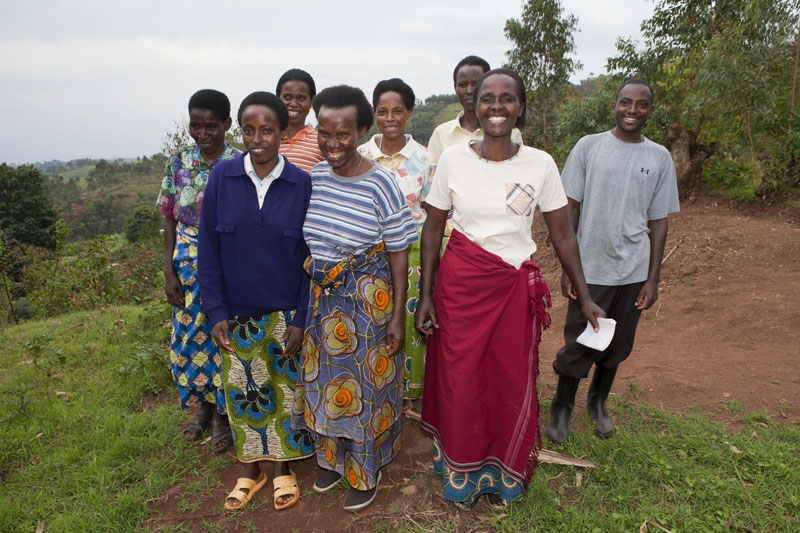
A three-year Survivors Fund project has significantly improved the income and wellbeing of 13,453 widowed survivors and their dependents, external evaluators have concluded.
The Genocide Widows Empowerment Project (GWEP) also exceeded its targets to reduce the number of survivor households living below the national poverty line and increase the number of households that have enough food and income.
And 91% of participants surveyed said the project had made a positive difference in their lives.
The GWEP aimed to help genocide widows and their dependents by tackling extreme poverty and hunger through improving their mental health; assisting them with ownership of land and property; and providing help with work and jobs.
The project was carried out by SURF and the Association of Widows of the Genocide (AVEGA) and funded by Big Lottery Fund (UK). The project’s effectiveness was evaluated by Lifetime Consulting.
Overall, 13,453 people benefited of which 28% (3,737) were direct beneficiaries and 72% (9,716) were dependents.
Evaluators wrote: “There was a consensus among evaluation participants, especially widows themselves, that GWEP was instrumental in raising awareness of property, land and other legal rights.
“In total 1,514 people received guidance from volunteer paralegals…this project resulted in a major increase in the number of participants who had legal disputes resolved; from 11% to 39%.”
The project also helped widows access mental healthcare, particularly trauma counselling.
District counsellors and 82 trained psychosocial workers ran individual and group counselling sessions for widows which resulted in giving them confidence to move on with life after they had lost hope due to the genocide.
Widows who were isolated from the rest of society were supported to re-engage with others through work and social activities. About 60% of the project participants surveyed afterwards said their trauma symptoms had reduced in the past three years.
The GWEP project also provided entrepreneurship training, income-generating activities and access to loans. Almost three quarters of participants (2653 people) received entrepreneurship and business management training. Subsequently, 1,271 of them accessed loans. The target to give 900 loans was exceeded by 41%.
Assessors concluded: “Overall, GWEP is highly appropriate and its relevance cannot be over-emphasised…The project appropriately addressed issues to do with weak psychosocial support services and limited livelihood options for widows of the genocide.
“It is commendable that AVEGA, with support from SURF, addressed these pertinent issues.”
Later they added: “The benefits of the project were considered to have outweighed the costs, which is… a demonstration of good value for money…We believe that the project was managed in a sound manner.”
